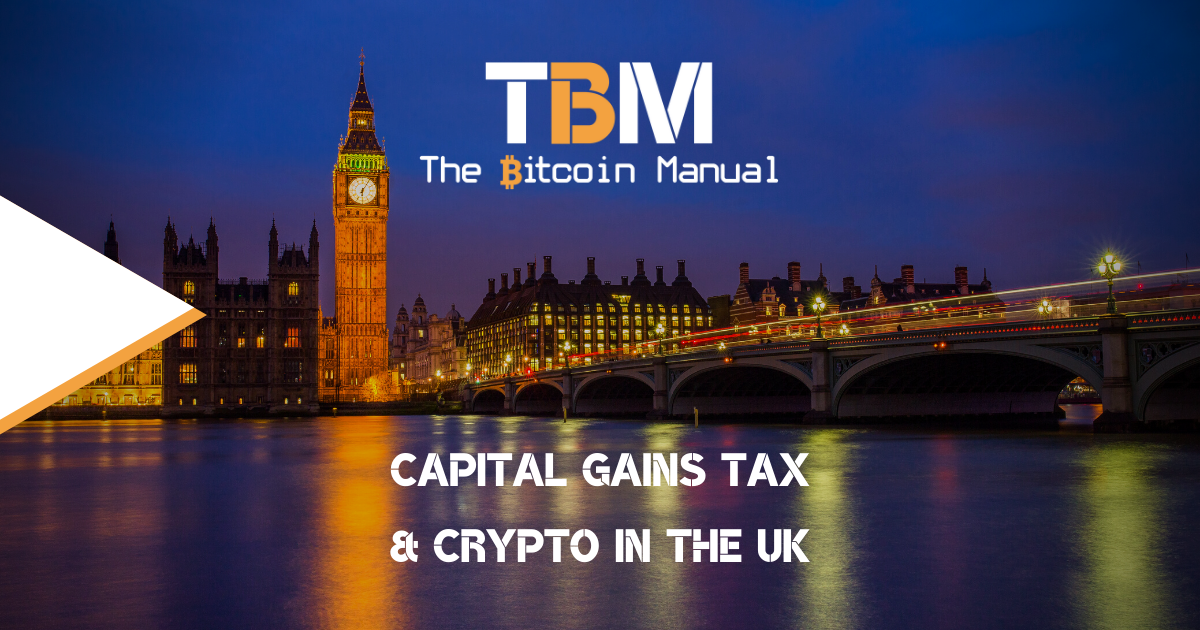About Those Taxes
It’s not often I talk about glamorous subjects such as tax but yesterday, I saw a great video about tax strategy from Louis Thomas, which is really important to know about and often overlooked. I posted a deep dive about 2 weeks ago in to how the UK capital gains taxes work with cryptocurrencies, trying to summarise the HMRC’s “Cryptoassets: Tax For Individuals” comprehensive page.
From my understanding, any time you dispose of crypto (exchange it for any other crypto/fiat), then it is a taxable event and needs to be recorded. If your gains end up being above the threshold of £12,300 then you will have to pay Capital Gains Tax. You’ll also need to know what the £ value was of the disposal at the time, which means needing to know what the £ value of the tokens you were trading at the time were.
Note: If you’re outside the UK then you will need to research your own local government’s and country’s laws on how tax works with crypto.
Since I posted that and after watching Louis’ video yesterday, the alarm bells starting ringing and, although I use Blockfolio, which is a great app to track all your transactions (you have to manually put them in), I realised that I’d signed up and used 6 exchanges and have done a lot of crypto swapping in that time. Thankfully, I am nowhere near the threshold for any of them but having to go back through 3 years of exchange history is going to be a right pain in the arse!
Getting Data From Exchanges
I managed to pull data from the 6 exchanges I’ve used but some have different ways of doing it and provide different information so if you use any of these exchanges, here’s what I found out:
- Coinbase – gives you all transactions, £ value of transaction, amount, the wallet you sent the crypto to from your whole history
- Binance – Only gives you 3 months of transactions at a time but you can go back through your whole history and download unlimited csv files. Will only give you the BTC value of the transaction so you need to do digging on the £ price of BTC at the time.
- Huobi – You can only go back to the last 4 months of transactions so if you need to go back further, you will need to contact their support desk. Again, they only give BTC value of transactions so will need to find out the £ price of BTC at the time
- Kucoin – Only gives you 100 days of transactions at a time but you can go back through your whole history. You can only download 5 csv files in a 24 hour period. Only gives you the BTC value at the time
- Ionomy – You can download your whole history but this doesn’t give all the information you need so you may have to go individually in each of your wallets on the exchange and copy/paste the info into an Excel file. This does provide the £ value of your transactions though which is pretty helpful.
- Bitshares – You can download your whole history (although I kept getting error messages so ended up just copying the text and pasting in to an Excel spreadsheet). You’ll have to find the price information at the time of the crypto though.
Thankfully, all of them give the time stamp of the transaction so you can pinpoint the price – I did some research and found that this site (Investing.com) was the easiest to get around and had the information I needed… so far! Now I’ve pulled all the data, I need to add it all to a spreadsheet and see how it goes. Remember, this is the information HMRC say they need – full information on their site:
- The type of cryptoasset
- Date of the transaction
- If they were bought or sold
- Number of units
- Value of the transaction in pound sterling
- Cumulative total of the investment units held
- Bank statements and wallet addresses, if needed for an enquiry or review
Changing Tack?
After seeing that video from Louis, I will continue with the dollar cost averaging on the daily and weekly of buying BTC because that’s an easy enough transaction to track, i.e. buying and never disposing (unless BTC does actually reach 6 figures, then I’ll have to think about it haha) so for me, that’s straight forward enough.
However, it’s all the trades between crypto that I did to build positions on other crypto such as HIVE that has changed the game a bit. Even going from different tokens through swapping suddenly all became taxable events from December 2019 so it’s going to be a fun few weeks going back through all of this! I think by the time I’ve gone back through all the data, I’ll have missed the bull run LOL!
So if you don’t hear from me for a while, you know where I am!
I’ll probably decrease the frequency at which I buy alts unless there’s a direct way to buy them via fiat and maybe I’ll just have to bite the bullet for so called “handling fees” to avoid the taxable events. Would rather take 3% fee (which is an allowable cost) than 20% (being sucked away by CGT).
How about you – were you aware of all this in the UK? What’s the tax situation like in your country with regards to crypto? Let me know in the comments below!
Take care
Nicky
I’m not a financial or tax advisor and this isn’t tax/financial advice. Please seek advice from a chartered/legal accountant or professional if in any doubt




